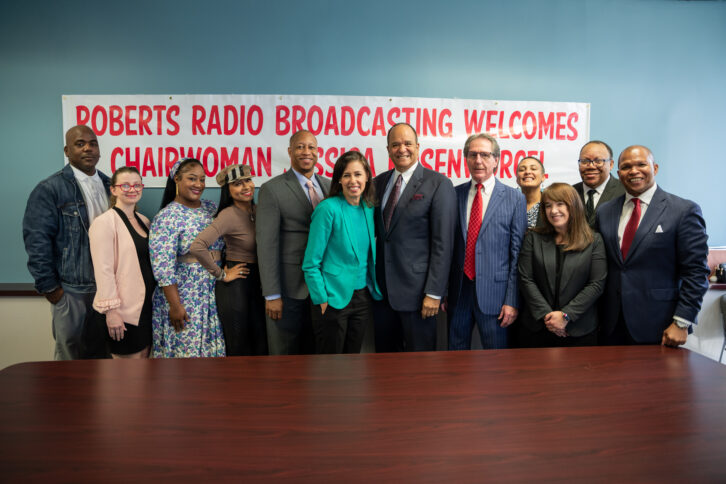FCC Chairwoman Jessica Rosenworcel paid a visit Friday to a local broadcast station in Jackson, Miss., that supports the idea of allowing FM geotargeting.
WRBJ Radio, an urban contemporary station owned by Roberts Broadcasting, said it hosted the chairwoman “to discuss the FCC’s commitment to harnessing innovative technologies to bridge the digital divide.” It issued a press release with photos from her visit, saying it spotlighted the station’s role in testing technologies “to serve minority communities and foster affordable connectivity.”
As we’ve reported, Rosenworcel has circulated an order among her FCC colleagues that would allow geotargeting, as proposed by technology company GeoBroadcast Solutions. But WRBJ Operations Manager Gregory McCoy said her visit was not timed to coincide with that.
“She was in Jackson for some other significant business, advancing affordable broadband and it was just a nice coincidence,” he told Radio World.

[Related: “FCC Looks Ready to Approve ZoneCasting”]
In 2022 WRBJ was one of two stations that conducted tests of GBS technology, focusing particularly on the community surrounding Jackson State University.
In the press release, the station noted that the technology enabled it to use boosters to broadcast up to three minutes of targeted content in specific portions of its usual broadcast range.
“The testing at WRBJ demonstrated the technology’s potential to not only extend coverage in areas with traditionally weak signals but also to enhance the station’s ratings through geo-targeted programming,” it said.
It quoted Steve Roberts, owner of the station, saying, “For years, we faced challenges competing with larger broadcast groups. During the testing, the technology not only improved our market coverage and revenue but also allowed us to support small businesses in our community by making advertising options more accessible and affordable.”
Opponents of the GBS system argue that it could cause unacceptable interference, listener confusion, market “redlining” and a race to the bottom for radio ad rates.










